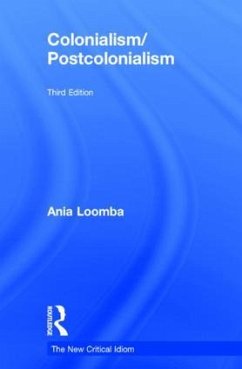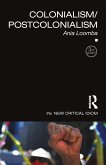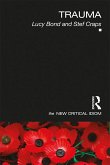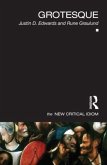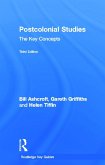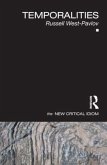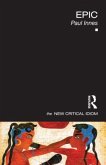Colonialism/Postcolonialism is a comprehensive yet accessible guide to the historical, theoretical and political dimensions of colonial and postcolonial studies.
This new edition includes a new introduction and conclusion as well as extensive updates throughout. Topics covered include globalization, new grassroots movements (including Occupy Wall Street), the environmental crisis, and the relationship between Marxism and postcolonial studies. Loomba also discusses how ongoing struggles such as those of indigenous peoples, and the enclosure of the commons in different parts of the world shed light on the long histories of colonialism. This edition also has extensive discussions of temporality, and the relationship between premodern, colonial and contemporary forms of racism. This books includes:
key features of the ideologies and history of colonialismthe relationship of colonial discourse to literatureanticolonial thought and movementschallenges to colonialism, including anticolonial discoursesrecent developments in postcolonial theories and historiesissues of sexuality and colonialism, and the intersection of feminist and postcolonial thoughtthe relationship of activist struggles and scholarship.
Colonialism/Postcolonialism is the essential introduction to a vibrant and politically charged area of literary and cultural study. It is the ideal guide for students new to colonial discourse theory, postcolonial studies or postcolonial theory as well as a reference for advanced students and teachers.
This new edition includes a new introduction and conclusion as well as extensive updates throughout. Topics covered include globalization, new grassroots movements (including Occupy Wall Street), the environmental crisis, and the relationship between Marxism and postcolonial studies. Loomba also discusses how ongoing struggles such as those of indigenous peoples, and the enclosure of the commons in different parts of the world shed light on the long histories of colonialism. This edition also has extensive discussions of temporality, and the relationship between premodern, colonial and contemporary forms of racism. This books includes:
key features of the ideologies and history of colonialismthe relationship of colonial discourse to literatureanticolonial thought and movementschallenges to colonialism, including anticolonial discoursesrecent developments in postcolonial theories and historiesissues of sexuality and colonialism, and the intersection of feminist and postcolonial thoughtthe relationship of activist struggles and scholarship.
Colonialism/Postcolonialism is the essential introduction to a vibrant and politically charged area of literary and cultural study. It is the ideal guide for students new to colonial discourse theory, postcolonial studies or postcolonial theory as well as a reference for advanced students and teachers.
Praise for the Second Edition:
"Colonialism / Postcolonialism is both a crystal-clear and authoritative introduction to the field and a cogently-argued defence of the field's radical potential. It's exactly the sort of book teachers want their students to read." Peter Hulme, Department of Literature, Film and Theatre Studies, University of Essex
"Loomba is a keen and canny critic of ever-shifting geopolitical realities, and Colonialism/Postcolonialism remains a primer for the academic and common reader alike." Antoinette Burton, Department of History, University of Illinois
"It is rare to come across a book that can engage both student and specialist. Loomba simultaneously maps a field and contributes provocatively to key debates within it. Situated comparatively across disciplines and cultural contexts, this book is essential reading for anyone with an interest in postcolonial studies." Priyamvada Gopal, Faculty of English, The University of Cambridge, UK
"Colonialism/Postcolonialism moves adroitly between the general and the particular, the conceptual and the contextual, the local and the global, and between texts and material processes. Distrustful of established and self-perpetuating assumptions, foci and canonical texts which threaten to fossilize postcolonial studies as a discipline, Loomba's magisterial study raises many crucial issues pertaining to social structure and identity; engaging with different modes of theory and social explanation in the process. There is no doubt that this book remains the best general introduction to the field." Kelwyn Sole Professor, English Department, University of Cape Town.
"Lucid and incisive this is a wonderful introduction to the contentious yet vibrant field of post-colonial studies. With consummate ease Loomba maps the field, unravels the many strands of the debate and provides a considered critique. She shows how post colonial theory forces us to reconsider some of our founding ideas, reorient our frames of enquiry, and rethink the very notion of colonialism. A must-read for everyone." Neeladri Bhattacharya, Jawaharlal Nehru University, India.
"This third edition of Loomba's important, useful volume significantly updates earlier editions (1998, 2005)...As is true of other titles in "The New Critical Idiom" series, this volume is intended to be both introductory and comprehensive, and it could even serve as a course textbook for advanced courses in theory. Although the book takes on theoretical works and concepts, Loomba's prose is clear and helpful, and she includes an extensive bibliography and a detailed index....Summing Up: Highly recommended." - R. D. Morrison, Morehead State University, CHOICE
"Colonialism / Postcolonialism is both a crystal-clear and authoritative introduction to the field and a cogently-argued defence of the field's radical potential. It's exactly the sort of book teachers want their students to read." Peter Hulme, Department of Literature, Film and Theatre Studies, University of Essex
"Loomba is a keen and canny critic of ever-shifting geopolitical realities, and Colonialism/Postcolonialism remains a primer for the academic and common reader alike." Antoinette Burton, Department of History, University of Illinois
"It is rare to come across a book that can engage both student and specialist. Loomba simultaneously maps a field and contributes provocatively to key debates within it. Situated comparatively across disciplines and cultural contexts, this book is essential reading for anyone with an interest in postcolonial studies." Priyamvada Gopal, Faculty of English, The University of Cambridge, UK
"Colonialism/Postcolonialism moves adroitly between the general and the particular, the conceptual and the contextual, the local and the global, and between texts and material processes. Distrustful of established and self-perpetuating assumptions, foci and canonical texts which threaten to fossilize postcolonial studies as a discipline, Loomba's magisterial study raises many crucial issues pertaining to social structure and identity; engaging with different modes of theory and social explanation in the process. There is no doubt that this book remains the best general introduction to the field." Kelwyn Sole Professor, English Department, University of Cape Town.
"Lucid and incisive this is a wonderful introduction to the contentious yet vibrant field of post-colonial studies. With consummate ease Loomba maps the field, unravels the many strands of the debate and provides a considered critique. She shows how post colonial theory forces us to reconsider some of our founding ideas, reorient our frames of enquiry, and rethink the very notion of colonialism. A must-read for everyone." Neeladri Bhattacharya, Jawaharlal Nehru University, India.
"This third edition of Loomba's important, useful volume significantly updates earlier editions (1998, 2005)...As is true of other titles in "The New Critical Idiom" series, this volume is intended to be both introductory and comprehensive, and it could even serve as a course textbook for advanced courses in theory. Although the book takes on theoretical works and concepts, Loomba's prose is clear and helpful, and she includes an extensive bibliography and a detailed index....Summing Up: Highly recommended." - R. D. Morrison, Morehead State University, CHOICE

